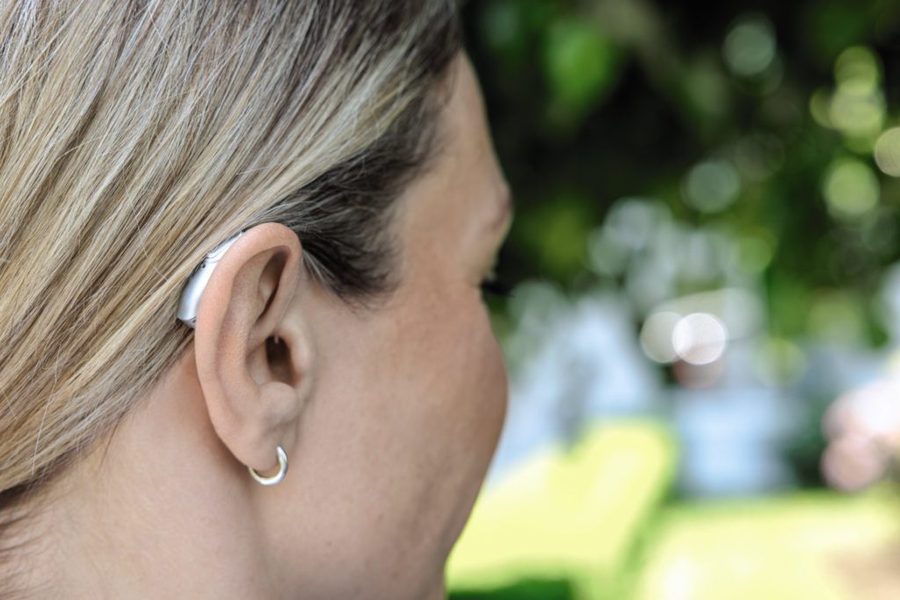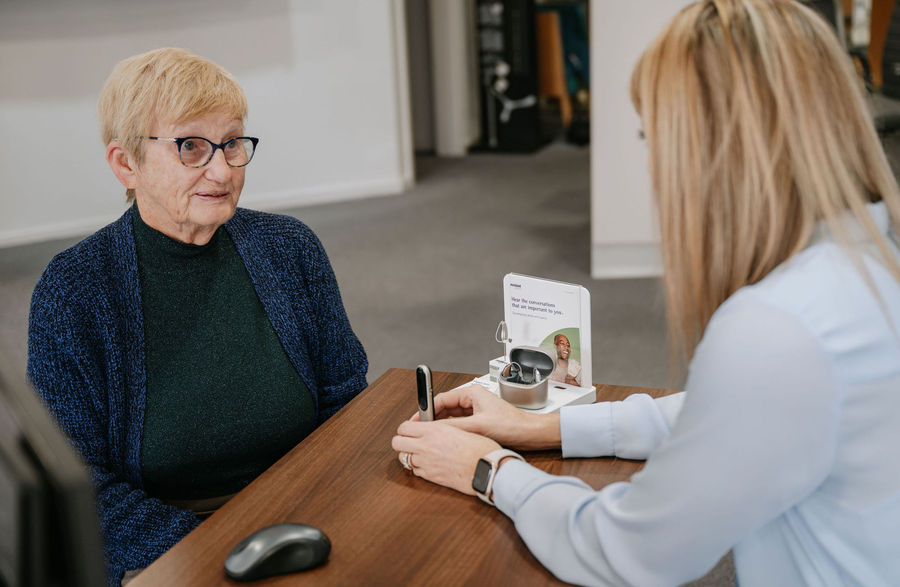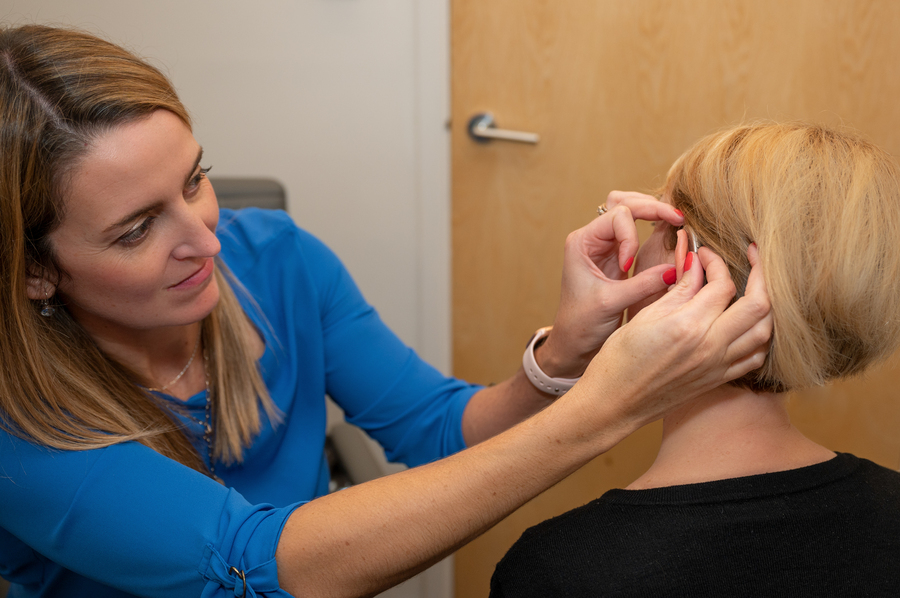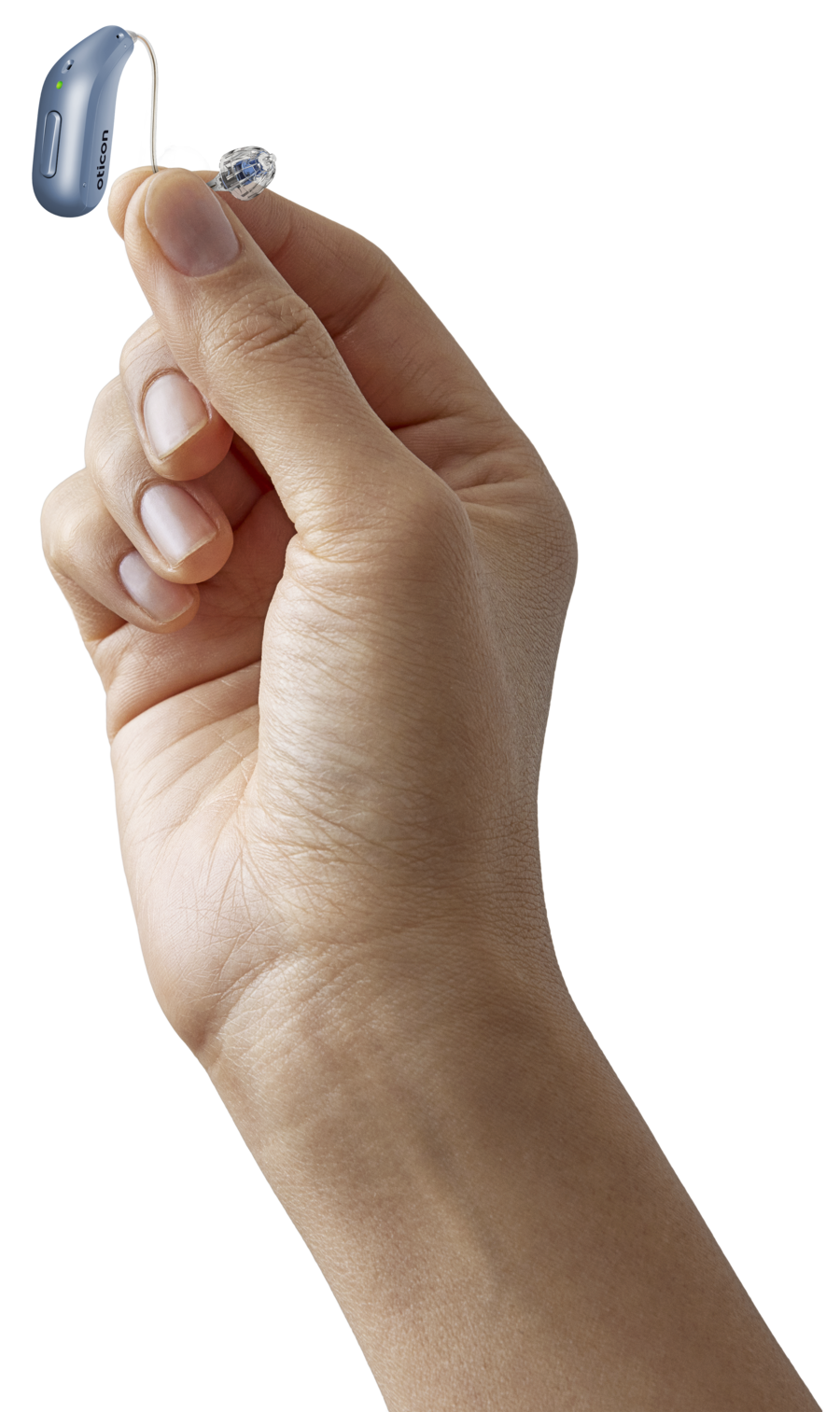Busting those hearing aid myths: Making healthy hearing a reality
Living with hearing loss but hesitant to wear a hearing aid?
It’s understandable—many people worry about how it might look or feel, but in reality, modern hearing aids are discreet, comfortable, and incredibly powerful tools for improving your quality of life. Wearing a hearing aid isn’t something to be afraid of; in fact, it’s a step toward reconnecting with the world around you. These devices can make conversations clearer, music richer, and life’s little moments more enjoyable. Rather than something to fear, think of a hearing aid as a bridge to better communication, stronger relationships, and more confidence in social situations. Once you experience the benefits, you’ll wonder why you waited so long to take this positive step. However, it is estimated that of the six million people in the UK who could benefit from using hearing aids only two million have them.
So let's debunk some common myths about why you might be hesitant to wear a hearing aid.
Hearing instruments are uncomfortable
Discomfort with hearing aids is often due to older models or improper fittings, but modern hearing aids are designed with comfort in mind. That’s why it’s crucial to have your hearing instrument properly fitted by an audiologist. If your device feels painful after you take it home, don’t hesitate to return for adjustments. For older hearing aids, especially those over five years old, discomfort might be a sign that it’s time for a new, more comfortable model.
Today’s hearing aids are sleek, designed for all-day wear, and fit comfortably even with glasses, making them far more comfortable than older models.
My hearing loss isn’t severe enough to warrant a hearing aid
When you suspect you're struggling to hear, early detection is crucial, especially if fear of wearing a hearing aid is holding you back. Many people downplay hearing loss, often because it develops gradually, making it hard to pinpoint the moment they feel ‘ready’ to seek help. However, waiting too long to address the issue can have far-reaching consequences.
Untreated hearing loss is linked to a higher risk of dementia, as the brain strains to compensate for the lack of auditory input, which can accelerate cognitive decline. Mental health difficulties, such as anxiety and depression, are also more common in those with unaddressed hearing problems, often stemming from social isolation and loneliness. Communication struggles can strain relationships with family and friends, while frustration and misunderstandings can lead to withdrawal from social situations. Additionally, hearing loss can impact sleep quality and reduce career opportunities due to communication challenges in the workplace.
By seeking help early, you can avoid these negative outcomes and improve your quality of life. Modern hearing aids are discreet and comfortable, making the decision to take action far less daunting than it might seem.
Hearing aids do not work effectively, especially in noisy environments
Modern hearing aid technology has made significant advancements in helping users hear better in noisy environments. One of the biggest challenges people with hearing loss face is distinguishing speech from background noise, especially in busy settings like restaurants or social gatherings. Today’s hearing aids have sophisticated features designed specifically to address this issue.
Many modern devices use directional microphones that focus on sounds coming from the front, helping to reduce background noise from other directions. Additionally, they have noise reduction algorithms that analyze and filter out unwanted sounds, allowing speech to come through more clearly. Automatic scene detection is another feature that enables the hearing aid to recognize different sound environments—such as a quiet room or a bustling street—and automatically adjust the settings for optimal hearing.
These advances improve clarity and reduce listening fatigue, making it easier and more comfortable to engage in conversations even in noisy situations. With these cutting-edge technologies, modern hearing aids can significantly enhance hearing in challenging environments, restoring a more natural listening experience.
They are embarrassing to wear
Despite efforts to change the narrative around hearing instruments, there is still a level of stigma when it comes to wearing hearing instruments. However, as time has gone on, hearing technology has gotten smaller, more sleek, available in a wider range of skin tones, smarter and more convenient.
Wearing hearing aids shouldn’t be embarrassing because today’s devices are sleek and discreet, often barely noticeable. Modern hearing aids offer excellent sound quality and blend easily with your lifestyle. Using them shows you’re taking care of your health, much like wearing glasses for vision problems. The benefits, like better communication and reduced isolation, far outweigh any concerns about appearance. Embracing hearing aids means you’re making a smart choice to stay connected and engaged with the world.
They don’t restore hearing back to normal
Hearing aids can significantly improve your quality of life, even though they can’t fully restore hearing to its original state. They enhance your ability to hear and understand speech, making conversations clearer and more enjoyable. This helps reduce feelings of frustration and isolation, allowing you to engage more fully in social activities and relationships. Modern hearing aids also help you stay connected with your environment, improving your safety and overall well-being. They are programmable and can be adjusted to suit your specific needs, whether it’s for enjoying music or conversing in large groups. Your audiologist can customize your hearing aid to enhance your experience in these important situations, and even small adjustments can make a significant difference.
If you take a moment to consider what matters most to you—whether it’s engaging in social events or enjoying your favorite activities—better hearing could help you reconnect with those experiences. So, if improved hearing could bring more of what you love back into your life, why wait?
At Buchanan Audiologists, we’re here to guide you through the process and make sure your hearing aid feels just right for your needs.






